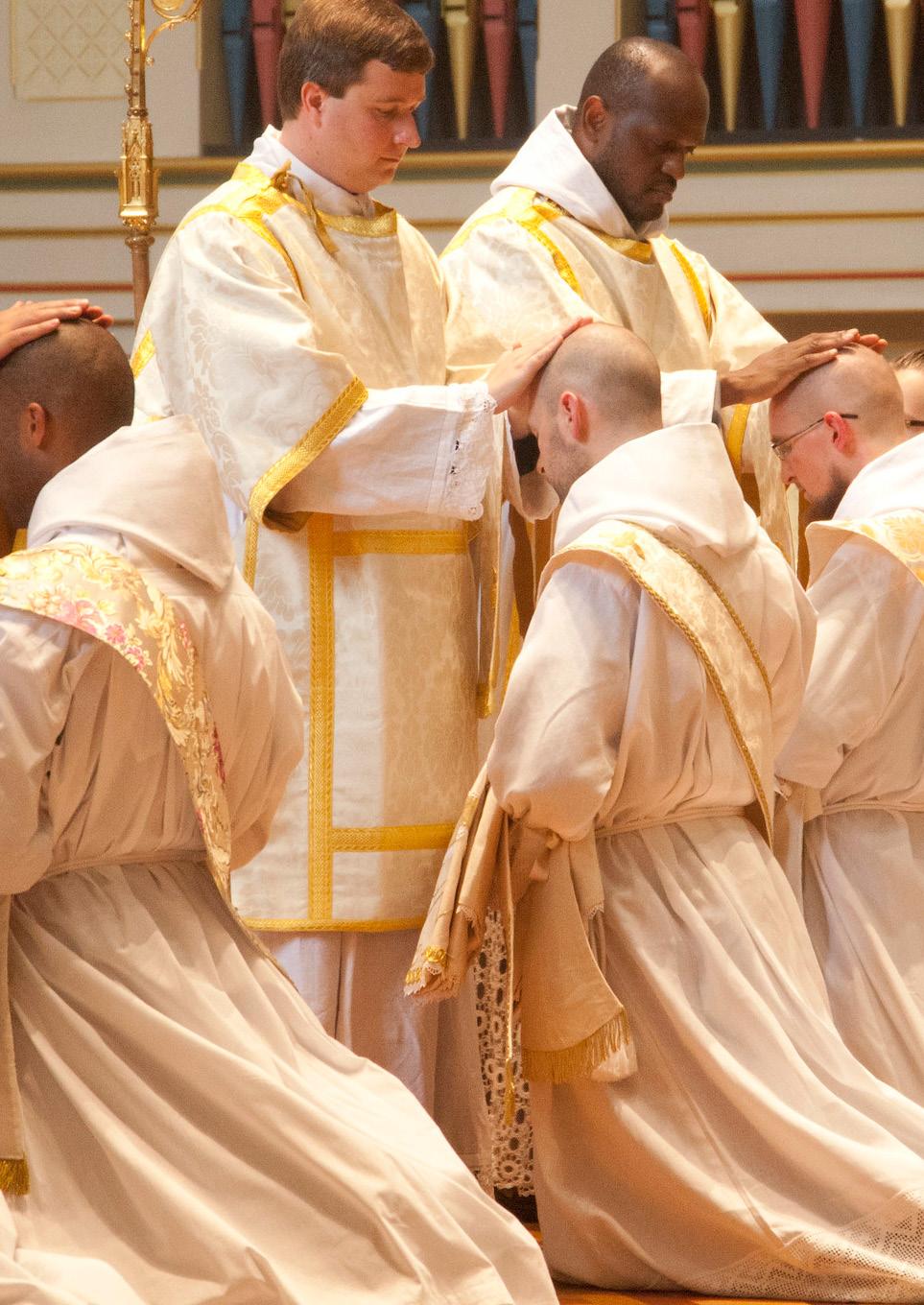
4 minute read
Where have our vocations gone?
By Fr Christopher Basden
The projected closure of St John’s Seminary, Wonersh, is heart breaking for so many priests in the south of England. Wonersh is our Alma Mater. Seminaries are our future. This news has come in the wake of the projected demise of Downside Abbey where my uncle was Ordained. The Monasteries are our hidden strength! How much more decline must we face?
In my own lifetime I have seen the closure of every minor Seminary in these Isles. In Scotland there are no Seminaries left and in Ireland only one (their Roman Colleges continue). For the English we have seen the closure of Lisbon, Upholland, Ushaw and now Wonersh. They are killing off the fruitfulness of a Church we have known and loved!
Of course, I realise there are many external factors including the huge demographic, cultural and sexual revolutions we have undergone. However, it is undeniable that there has also been a revolution within the Church (catechetical, liturgical, and theological) that has facilitated a doctrinal relativism which has considerably weakened the Church’s confidence. Moral relativism also has entered in and has infiltrated with sexual impropriety into the highest echelons of the Clergy, thus disgracing us before the whole world.
Although I am sad and pessimistic about today’s ecclesial scene I am not without hope. The purpose of this article is to show how many British young men and women look beyond these shores for vocation, not unlike in penal days. Below is a list of some of the main Seminaries and religious congregations which have in 2020 British men and women within.
More than 100 British men and women are listed above. Why have this many young British men and women sacrificed not only family but homeland, culture and even language often for ever? There are several factors: 1. The identifying character of the Cassock/Religious Habit.
This ancient tradition goes back centuries and is also evident in all the Churches of The East. The Habit does not make the Monk, but it certainly identifies and helps the Monk! How can one deny this dimension which helps unite Brownies and Cubs all the way up to the armed forces who parade each
November before the Cenotaph? 2. A challenge involving a certain amount of rigour without being inhumane. 3. A conviction that salvation is not assured. The missionary endeavour of the Church has been compromised by the newer current of universalism and pseudo ecumenism. This has damaged the incentive to evangelise and live the radicality of the Gospel. 4. An unashamed eagerness to witness to the power of Chastity in this sullied and destructive era. An eschewing of ‘gender fluidity’; acknowledging the complementarity of male and female as created by God. 5. The Perennial Philosophy. In the recent Code of Canon Law 252 it states: ‘Students are to learn to penetrate more intimately the Mysteries of Salvation especially with St Thomas as a teacher.’ and in Canon 251: ‘Philosophical Instruction must be grounded in the perennial valid philosophical heritage.’ 6. An unashamed conviction in the belief of the supernatural.
As St Paul says, “If our hope in Christ is for this life only, we are the most miserable of men.” 7. The Traditional Liturgy. I know this is something my ageing contemporaries cannot bear to hear, but the Immemorial Mass of the Roman Rite which goes back to St Gregory The Great has an explicit doctrinal and eucharistic clarity and content.
Furthermore, it is characterised by a profound abasement of the human before the majesty of God accompanied by a beauty and other worldly silence. The sublime vehicle of Gregorian Chant (which Vatican II said should have pride of place) is unsurpassed by any other artistic expression in the history of Christianity. The traditional liturgy does not straitjacket participation but allows for a more inclusive liberty to connect in different individual ways. For centuries, this Mass captivated and inspired millions inside and outside the Church and it still does.
For me, the simple fact is, tradition works! Who on earth likes tea, coffee, wine or beer diluted? Similarly, if our Catholic heritage is diluted the whole impetus to live it is weakened. The recently canonised John Henry Cardinal Newman campaigned throughout his life against ‘That one great mischief – liberalism in religion’.
While at St Bede’s Clapham Park in London (1994-2018) I was amazed at how many young people attended our Traditional Rite as a springboard for discerning vocation. Many of course tried and did not persevere but in the Tradition they found the certainty, the beauty, and the incentive to at least have a go. We had youth who visited Papa Stronsay in Scotland, Silverstream near Dublin, and Norcia in Italy, to name three Traditional Monasteries which in a very short time have developed viable communities.
Exhausted Bishops spend a lot of energy trying to fill empty parishes and convents with priests and religious from other continents and cultures which have enriched our Catholicity. However, hopefully they are now beginning to see that young British men and women are still also called to Ordination and Profession and would like to help this country realise the Resurrection!

Where have our vocations gone?










